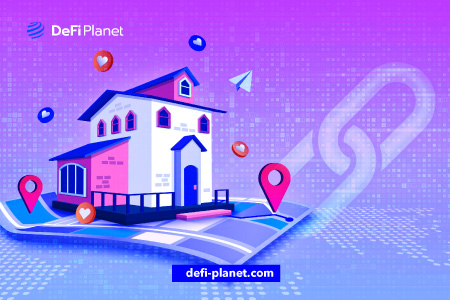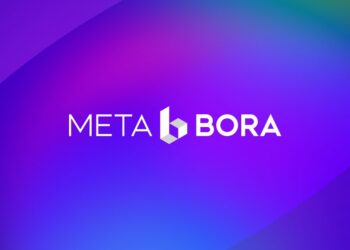Blockchain is a cutting-edge technology that is transforming numerous industries. It is the birthplace of many innovations, such as smart contracts, decentralized finance, NFTs, Decentralized Autonomous Organizations (DAOs), and Play-to-Earn (P2E) games, among others.
Multiple sectors are benefiting from blockchain technology, including capital markets. Thanks to blockchain technology, lengthy processing times in the capital markets are a thing of the past. Trading round the clock is now possible, and activities are more transparent.
Another industry that seems to have benefited tremendously from this technology is the supply chain industry, which now has improved transparency, quality assurance, provenance validation, and track-and-trace features.
The identity management industry also benefits from specific blockchain-based solutions. With top-tier solutions such as Soulbound Tokens, identity management is bound to become easier for organizations.
Another industry that introducing blockchain technology has significantly impacted is real estate.
The real estate industry is sporting a new look due to technological advancements in various sectors, such as the tokenization of real estate, faster transactions, improved transparency, and much more.
This article briefly defines the concept of blockchain technology and comprehensively explores its implications for the real estate industry.
What is Blockchain?
A blockchain is an immutable ledger distributed across a network of computers or nodes.
Blockchains are decentralized because they are not governed by centralized authorities. As a decentralized technology, they are managed by a network of nodes or computers that keep each other in check. This kind of technology is typically accessible to the public.
Blockchains are designed to be transparent, immutable, decentralized, and pseudo-anonymous. According to Vitalik Buterin, a blockchain should solve the trilemma: decentralization, security, and scalability. Blockchains typically have a network of validators or miners who verify transactions.
Scalability implies that the network’s capacity should be able to increase as the chain’s activities increase. In terms of security, the network should be nearly impossible to compromise and must function effectively.
How Does Blockchain Impact the Real Estate Industry?
In recent times, more organizations have been researching ways to incorporate this technology, especially smart contracts, into their real estate operations. The following are some of the ways blockchain impacts real estate.
Smart contracts
Real estate transactions usually involve numerous agreements. Participants are expected to draft terms and conditions and incorporate them into a contract. Usually, the contract states what is expected of every party and their rights.
Suppose a property is to be sold or leased. In that case, the contract incorporates the terms of the agreement between the buyer and seller or the lessee and lessor. The various parties must keep their end of the bargain. Failure to do so constitutes a breach of contract, which may result in legal action.
A traditional real estate agreement often requires many legal professionals to draft it, which may be expensive for the average person. This is one of the reasons why real estate is costly.
Smart contracts are redefining this by decreasing the need for attorneys and streamlining the process of reaching agreements in the real estate industry.
Individuals can use smart contracts to create and enforce agreements automatically. Smart contracts are multi-party agreements that are automated. They are intended to address the shortcomings of traditional contracts, which are modifiable.
People can add any terms to the contract, and once the contract is deployed on the blockchain, they are immutable, lowering the risk of participants attempting to tamper with the agreement to their advantage.
Individuals can use smart contracts to automatically make payments when specified conditions are met and transfer property titles to another party.
Whatever additional terms are enforced, it is important to note that, while this may work, smart contracts may not be admissible in some legal jurisdictions.
Ensure the local jurisdiction recognizes smart contracts as legally binding evidence before drafting one to sell a property or participate in a real estate transaction.
It is also essential to conduct an audit on the smart contract to ensure that there are no flaws in the code that would prevent its implementation.
Tokenization of assets
Tokenization is the process of converting a tangible asset into tokens or digital assets. Individuals can now convert real-world commodities such as gold into tokens that can be traded on exchanges thanks to blockchain technology.
Real estate assets can also be tokenized into digital assets, allowing individuals to own them without spending a lot of money.
Purchasing a traditional real estate property is often prohibitively expensive and out of reach for the average person.
Tokenization makes real estate assets more divisible and accessible to investors. Instead of spending millions on a single property that is out of reach for most investors, people can buy a small portion of a larger property for a lower price. Due to blockchain technology, fractional ownership has become a key aspect of real estate.
Real estate properties are not liquid, meaning that owners of these assets often have to spend a long time trying to convert their holdings into cash. Sometimes, selling a property may take months or years, which can be frustrating for owners. Tokenizing real estate assets facilitate their sale on exchanges or marketplaces.
Tokenization allows investors to buy a portion of any property anywhere in the world. They can easily purchase any asset they desire from the comfort of their home. The process remains the same when they want to sell their real estate assets.
The tokenized form of real estate can be compared to an NFT that can be traded in real-time. When purchasing a real estate token, it is vital to determine whether or not the token grants the user ownership rights to the underlying real asset.
Elimination of middlemen
Blockchain technology eliminates the need for middlemen or intermediaries in real estate transactions. This means that buyers and sellers can enter into contracts without having to deal with realtors, lawyers, and the like.
Because there are no intermediaries, total costs are drastically reduced, and transactions are much faster.
Smart contracts have the potential to automate the entire process, making it more convenient for both buyers and sellers. The back-and-forth that characterizes a traditional real estate transaction is sidestepped.
Transparency
The blockchain brings transparency to real estate transactions. Before purchasing a property, an investor can easily track its history and ownership. Individuals can learn if the property had a lien and who the previous owners were.
In Conclusion,
- A blockchain is a ledger of immutable records distributed across a network of computers or nodes.
- Smart contracts have redefined this by simplifying the process of reaching agreements in the real estate industry and reducing the need for lawyers.
- Individuals can use smart contracts to create and enforce agreements automatically.
- Tokenization is incorporated into real estate by blockchain technology.
- Tokenization is the process of converting a physical asset into tokens or digital assets.
- Blockchain technology eliminates the need for middlemen or intermediaries in real estate transactions.
- Fractional ownership has become an important aspect of real estate due to blockchain technology.
- Blockchain technology increases the transparency of real estate transactions.
- Blockchain technology makes real estate more liquid and easier to sell.
If you would like to read more articles like this, visit DeFi Planet and follow us on Twitter, LinkedIn, Facebook, and Instagram.
“Take control of your crypto portfolio with MARKETS PRO, DeFi Planet’s suite of analytics tools.”





















